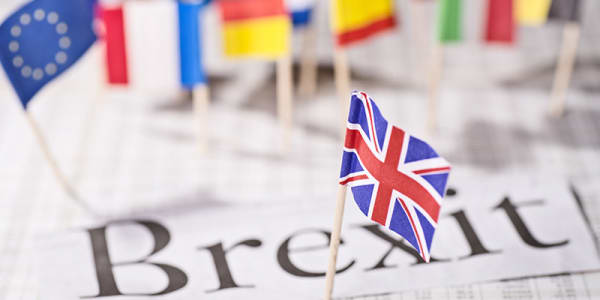Learn more about ActiveChristianity, or explore our theme pages for more

The buck stops here…
Or should I say the “pound?” Leaving with the “Brexit,” here’s what I discovered.

I am middle-aged and British. Apparently it is my generation that has turned our collective back on Europe and voted for Brexit, leaving the younger generation in Britain fuming at their lost future at the hands of their parents.
It’s not just that they won’t be able to travel around in Europe easily, or that they may not be able to study in European Universities without a much heftier fee, or that they won’t be able to work in Europe without a visa. No, it’s been seen as much more profound than that. It’s been seen as catastrophic.
Voting isn’t always as easy as it looks. Because for me, I don’t really know. I don’t understand the facts of trade deficits, and safety laws, and human rights, and tax levies, and border controls, and benefits systems, and health spending, and social housing, and immigration legislation, and quotas and foreign policy. So, why ask me? It seems strange to put such a vital question as leaving the EU to the public who in the majority will just go with their gut feeling. And if their guts are anything like mine, their vote will depend on who they listened to last or what the papers say.
But for the EU referendum I was determined to vote. So I had to pay attention and listen to what the politicians were saying and make an assessment. I also read political commentaries by experts who weren’t in government but who seemed to know what they were talking about.
And I made a decision to vote Leave.
That was until one of my sons spoke to me about something completely different from benefit systems, foreign policy and border controls. He spoke to me about arrogance.
I had been brought up to view our little island as somewhat apart from the rest of Europe. As somewhat better. Somewhat superior. This was not expressed in so many words, but was implied by references to the way our nation stood up against Hitler, defended Europe when nobody else did, gave India their railways, brought prosperity to Hong Kong, invented most of the team games played by countries all over the world, had an Empire, then a Commonwealth, and a Queen God Bless Her. The result of this attitude, my friends, is smugness.
One story I was told as a child was that a Frenchman had said what was irritating about the English was that they didn’t think they were better than everybody else; they knew they were.
And actually typing that now is rather embarrassing …
The best thing for this British old-school-sitting-on-our-laurels-congratulating-ourselves-on-our-past way of thinking is to wake up to reality.
1. Our past isn’t as glorious as we would like to think it is.
2. Our moral fibre is just as jaded as the next country.
3. We have become a materialistic society no longer even pretending to be “Godfearing.”
4. Our leaders could be corrupted as easily as the leaders of other European countries.
5. The language of heaven won’t be English.
6. Other countries play our games better than we do.
I had a good long look at what opinions I had about myself and my country – the smugness, the self-congratulation, the assumption that we were always right. I had to acknowledge that I hadn’t sought God about the whole dilemma. I had read the newspapers and watched interviews on television and come to my own conclusion based on what I heard politicians say. But had I heard what the Holy Spirit had to say? Not about Britain, but about me.
And I had to admit that this verse was like looking in a mirror:
“… he is proud, knowing nothing, but is obsessed with disputes and arguments over words, from which come envy, strife, reviling, evil suspicions …” 1 Timothy 6:4.
So, I detected this arrogance in myself. I voted to Remain.
In the end, however, a small majority voted to Leave, so “Brexit” is a reality. We can ask ourselves what we will gain by raising our drawbridge to keep out “undesirables”, having control of our own borders, being “free” from Brussels. That remains to be seen, but we have lost a lot of good will. We are running the risk of being ostracised. We run the risk of going backwards into a misplaced sense of elevated self-esteem. Have we rejected striving for unity, rejecting just being one of a group, of not wanting to be part of something bigger than just us?
The prior PM of Australia Kevin Rudd put it succinctly when talking about the UN Security Council, and the part all nations should play in “global burden-sharing” when he said; “Britain minus Europe is a problem.”
Yes, pride brings problems. But there is a solution.
“But He gives more grace. Therefore He says: ‘God resists the proud, but gives grace to the humble.’” James 4:6.
Pride, it is said, comes before a fall. I sincerely hope that Britain hasn’t voted Leave out of arrogance, and that the people who voted Leave did so with the best of intentions. But you know what? Whatever our countries decide to do, what laws they pass, what policies they develop, we as individuals can get the grace that James writes about, and we can flourish. I can’t change the mindset of the country, but I can get grace to change mine.
Like what you’re reading?
Scripture taken from the New King James Version®, unless otherwise specified. Copyright © 1982 by Thomas Nelson. Used by permission. All rights reserved.



